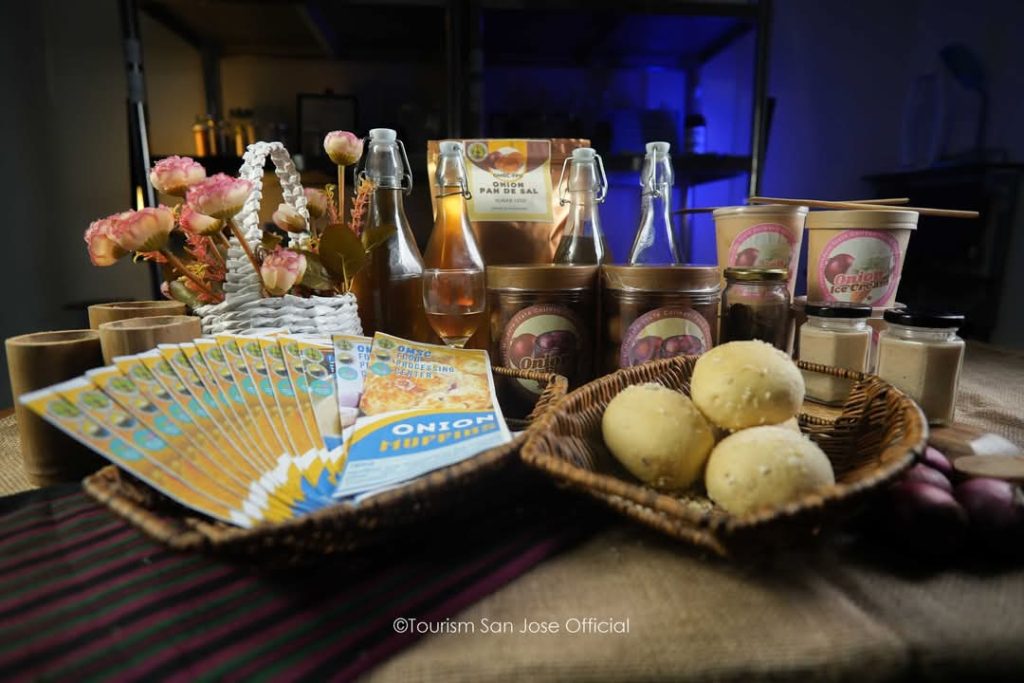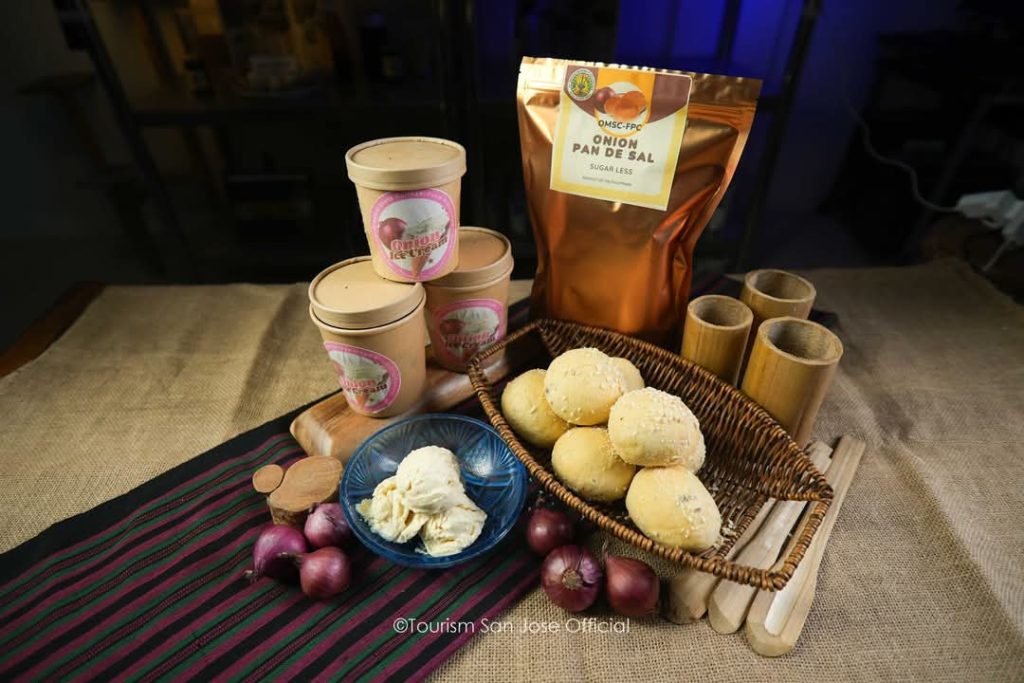Onions, a kitchen staple in Filipino dishes like adobo and sisig, are taking on an unexpected role as a sweet summer treat, thanks to researchers at Occidental Mindoro State College (OMSC).
In a pursuit to support Mindoreño onion farmers dealing with plummeting prices, the college has developed a range of innovative onion-based products, including a surprising standout: onion-flavored ice cream.
The onion industry in Occidental Mindoro, one of the country’s top onion-producing provinces, has faced struggles in recent years.
In 2022, the Department of Agriculture (DA) reported a sharp decline in farm gate prices for red onions, dropping from P42 pesos per kilogram to as low as P12-15 pesos.
By late that year, prices hit a record low of P8 pesos per kilogram, as imported onions flooded the market during the island harvest season, according to Romel Calingasan, San Jose’s municipal agriculturist.
These prices, insufficient to cover production costs, left farmers in financial distress.
Occidental Mindoro, alongside provinces like Nueva Ecija, is a top player in the country’s onion supply, but overproduction, inadequate storage, and competition from imports have strained the industry.
In response, OMSC researchers stepped in to transform this surplus into an opportunity.

“There has been no established research on using onions in sweets, specifically ice cream. Luckily, our research proved that onions can be used to make ice cream,” said Arvin Jonathan Flores, the center’s technology transfer officer.
The team didn’t stop at ice cream.
They also developed onion-infused pandesal (a traditional Filipino bread), vinaigrette, paste, and even wine—products currently exclusive to OMSC’s campus in San Jose. These innovations aim to showcase the versatility of onions beyond their savory reputation.
For Flores, the project is about more than novelty—it’s a lifeline for farmers.
“Some farmers are content with producing and selling raw onions, limiting the industry’s potential for value-added activities,” he said. “Our problem is, what if the price of onions drops? How will they earn a profit in that scenario?”
Occidental Mindoro’s onion farmers have long faced volatility.
Floods, pest outbreaks, and a lack of cold storage have compounded the challenges of overproduction and low prices.
DA has intervened with measures like partnerships for cold storage and supermarket distribution, but OMSC’s research offers a grassroots solution.

“This can help the onion industry flourish, beyond just producing onions,” Flores added.
OMSC is putting the finishing touches on its onion ice cream, finalizing nutritional labeling and shelf-life analysis to prepare for public release later this year.
The team is also exploring additional ice cream variants to expand the line.
To boost visibility, the college has partnered with San Jose’s Municipal Tourism Office and is seeking collaboration with the Department of Trade and Industry for labeling support and integration into the One Town, One Product (OTOP) initiative.
The goal?
To bring onion ice cream and other products to Filipinos nationwide, showcasing their potential locally and beyond.
The idea of onion ice cream may raise eyebrows, but early tasters are hooked.
“People are amazed by the taste. They can’t quite describe the experience, but they clearly enjoy it,” Flores said.
Visitors can sample the treat at OMSC’s Food Processing Center in Barangay Murtha, San Jose, or reach out via the center’s Facebook page.
Occidental Mindoro’s onion sector remains a vital economic driver, with municipalities like Magsaysay thriving due to ideal growing conditions.
Yet, the industry’s struggles—high input costs, natural disasters, and import competition—persist.
Government efforts, including a P326.97 million peso DA investment in productivity enhancements, signal hope, but OMSC’s creative approach could redefine the future of onions in the country.
From a humble ingredient to a surprising dessert, onions are proving they’re more than just a flavor enhancer—and Occidental Mindoro is leading the way.
Photos: courtesy of San Jose Tourism Office









Write Your Comment